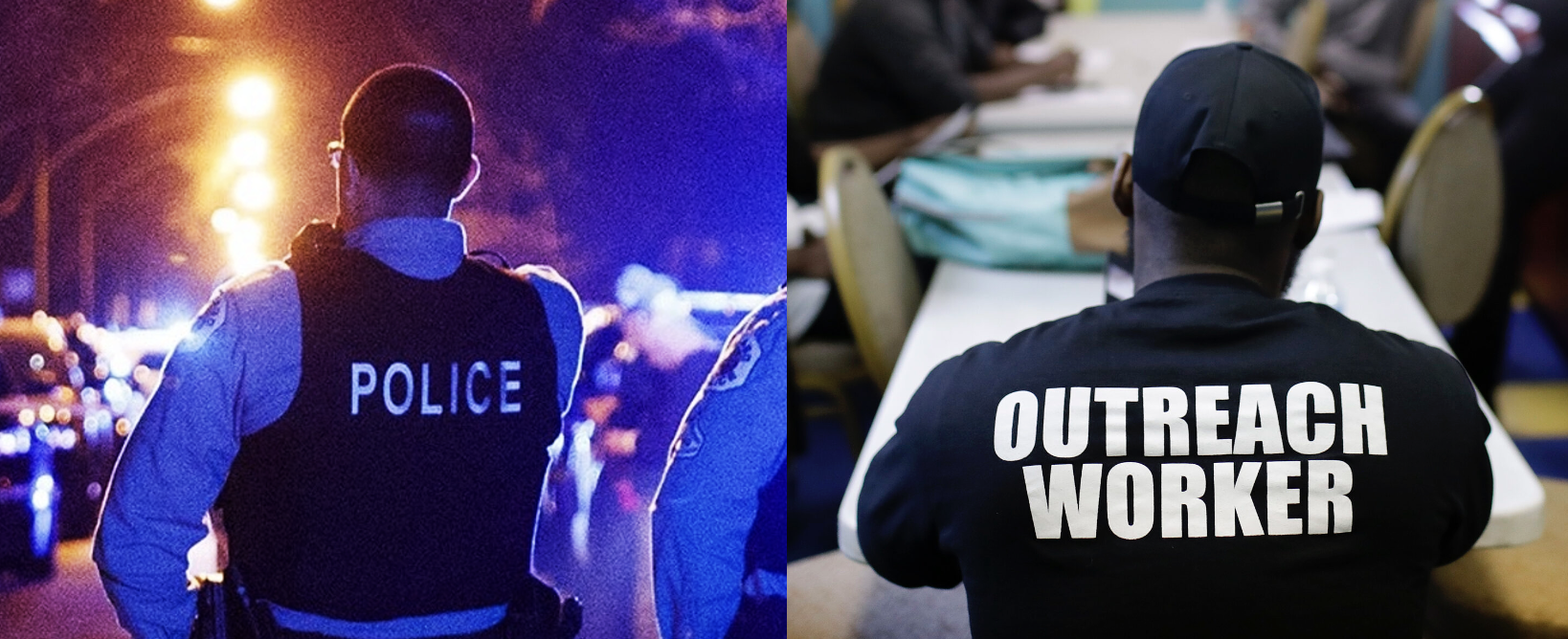Projects
Community Safety Leadership Academies
The Community Safety Leadership Academies, composed of the Policing Leadership Academy and Community Violence Intervention Leadership Academy, aim to educate police and community violence intervention leaders.
Violence Reduction Dashboard
The Violence Reduction Dashboard (VRD) is a publicly available visualization and analysis tool that provides greater transparency and accessibility to near-real-time violent crime data in the city of Chicago.

One Summer Chicago Plus
Sara Heller and Jon Davis, in partnership with the Crime Lab, evaluated a youth jobs and mentoring program, One Summer Chicago Plus, which provided jobs to thousands of youth as part of the city’s anti-violence strategy.
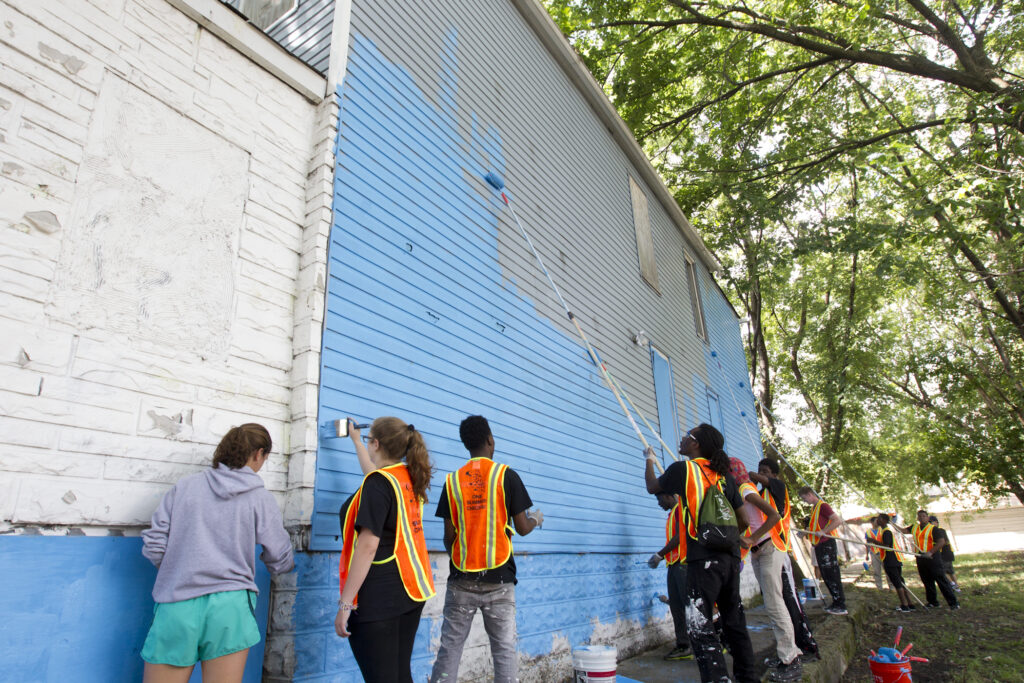
Policing Leadership Academy
The Policing Leadership Academy (PLA) is designed to increase safety and fairness in America’s most violent neighborhoods.

CVI Leadership Academy
The Community Violence Intervention Leadership Academy (CVILA) was established to develop the CVI sector by providing aspiring CVI leaders with the skills necessary to tackle leadership obstacles throughout their careers.
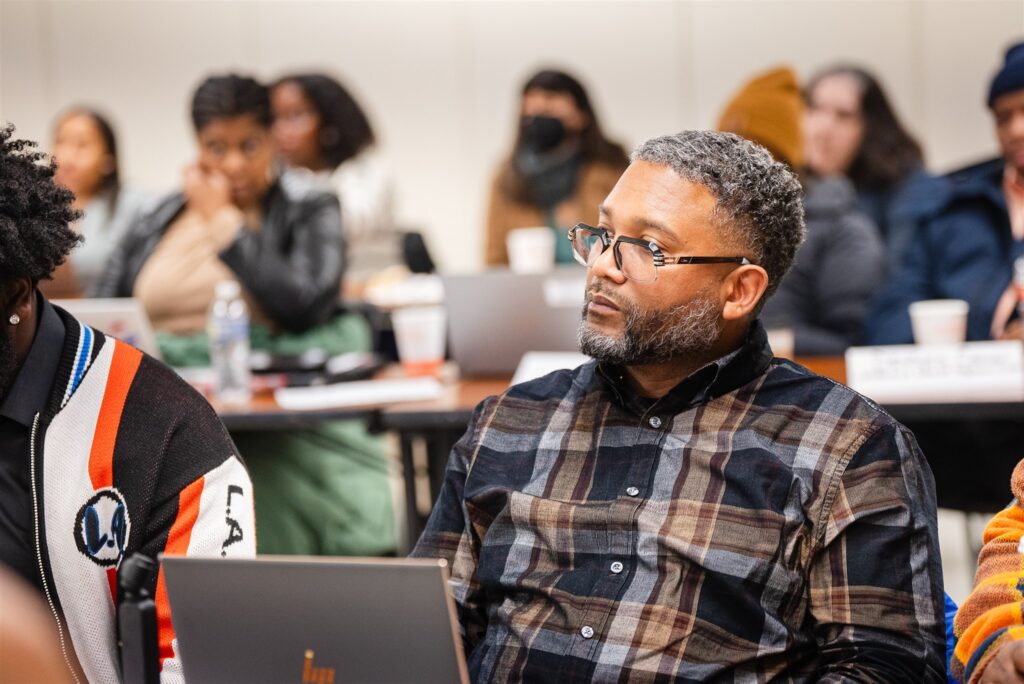
Becoming a Man
Youth Guidance’s Becoming a Man (BAM) uses insights from behavioral science to help youth navigate high-stakes situations.
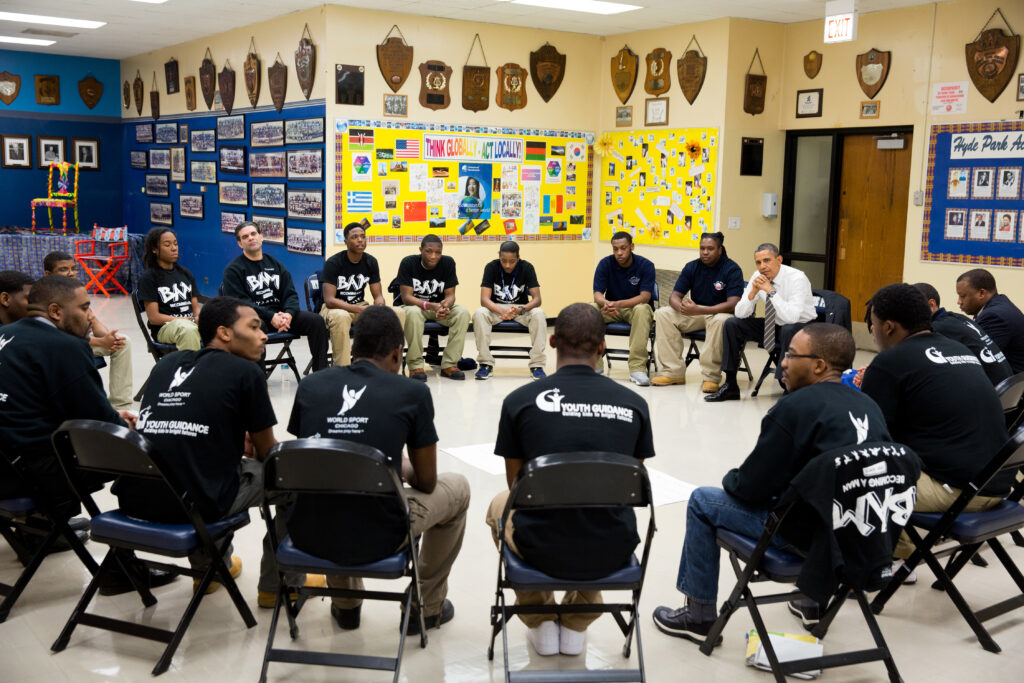
Supporting Enlace Chicago and New Life Centers with Data-Driven Proactive Outreach
Using a data-driven approach, the Crime Lab provides individual referrals to help outreach organizations Enlace Chicago and New Life Centers target their services to people who may be at the highest risk for gun violence involvement in the near future.

New York State Gun Violence Reduction Program
In partnership with New York State criminal justice agencies and the Manhattan District Attorney’s Office, the Crime Lab is evaluating the impact of “reentry forums” on recidivism rates across the state of New York.

Reducing Crime Through Environmental Design
In partnership with New York City government agencies, the Crime Lab designed a randomized controlled trial to evaluate the impact of street lighting on crime rates in public housing developments.

Back to Our Future (B2OF)
Back to Our Future (B2OF) is a state-funded, district-led, evidence-informed effort to re-engage disconnected students at an elevated risk for gun violence involvement.
Read the new policy brief.

Illinois Department of Corrections’ (IDOC) Facilities Mapping Project
To improve access to college education opportunities in prison, the Crime Lab partnered with the Illinois Department of Corrections (IDOC) to produce interactive statewide maps to connect facilities with nearby postsecondary education providers.

Officer Support System (OSS)
The Crime Lab partnered with the Chicago Police Department (CPD) to develop the Officer Support System (OSS), a next-generation, data-driven early intervention system to promote officers’ long-term mental health and wellness.

Situational Decision-Making (Sit-D)
The Crime Lab and the Chicago Police Department (CPD) partnered to create and evaluate a behavioral science-informed training that helps improve officer decision-making in ambiguous, high-stress situations.
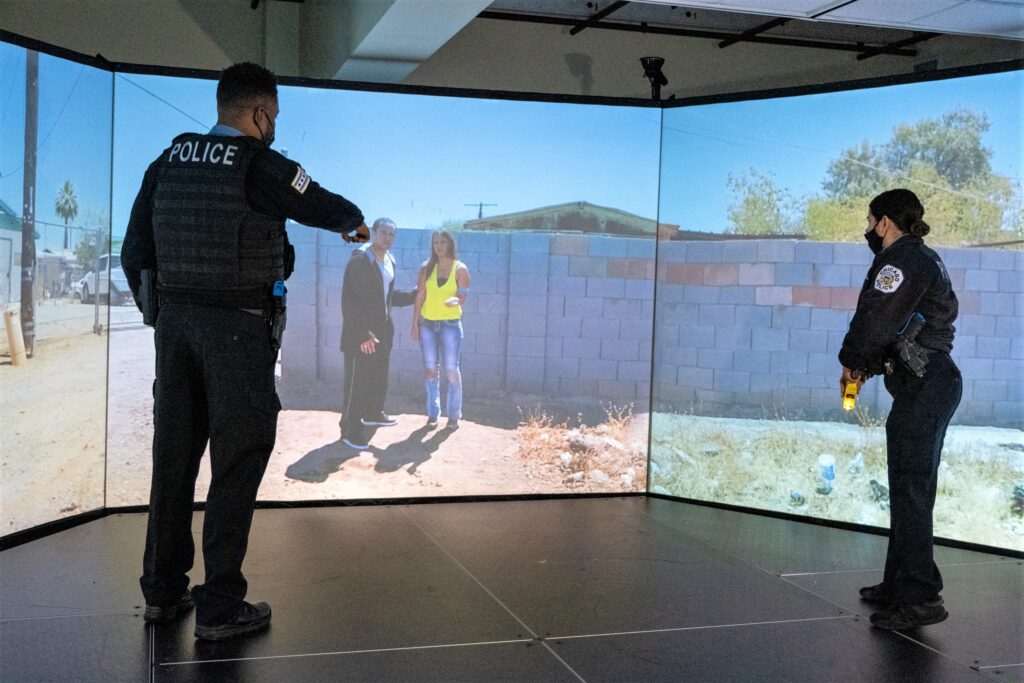
Choose to Change (C2C)
The Choose to Change program combines trauma-informed therapy with wraparound supports with the goal of reducing youth violence while improving educational outcomes outside of an institutional setting.

Targeted Interventions for High-Risk Domestic Violence Victims
The Crime Lab studied targeted approaches to identify high-risk domestic violence victims, conduct outreach, and provide resources to lower the risk of experiencing future harm.

Clearance Rates
The Crime Lab partnered with the Chicago Police Department to analyze historical trends in clearance rates for homicides and non-fatal shootings and evaluate the innovative Area Technology Center (ATC) model.
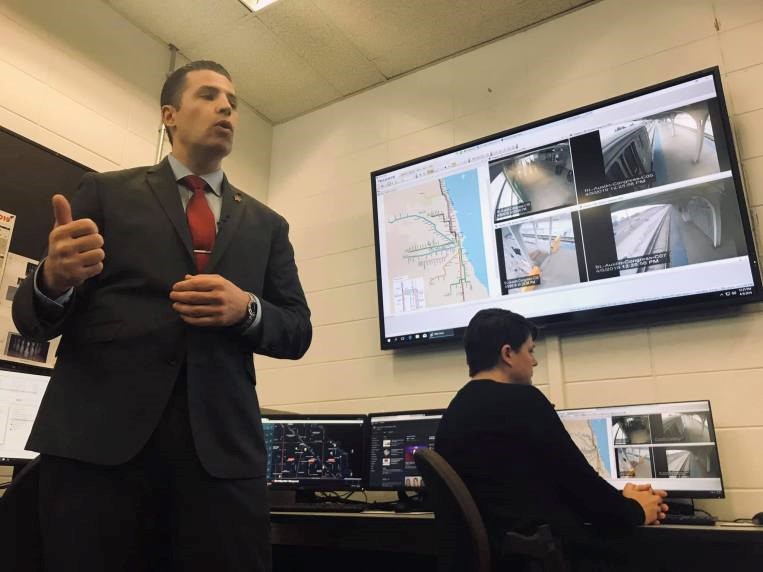
One Summer Chicago Plus
Sara Heller and Jon Davis, in partnership with the Crime Lab, evaluated a youth jobs and mentoring program, One Summer Chicago Plus, which provided jobs to thousands of youth as part of the city’s anti-violence strategy.

Workforce Allocation Analysis
The Workforce Allocation (WFA) Analysis examined where personnel resources at the Chicago Police Department are allocated to improve efficiency, equity, and transparency in patrol staffing.

City of Chicago Mayor’s Office Technical Assistance
The Crime Lab supports the City of Chicago’s Mayor’s Office on several crime reduction projects and initiatives that aim to improve public safety outcomes for Chicago residents.


